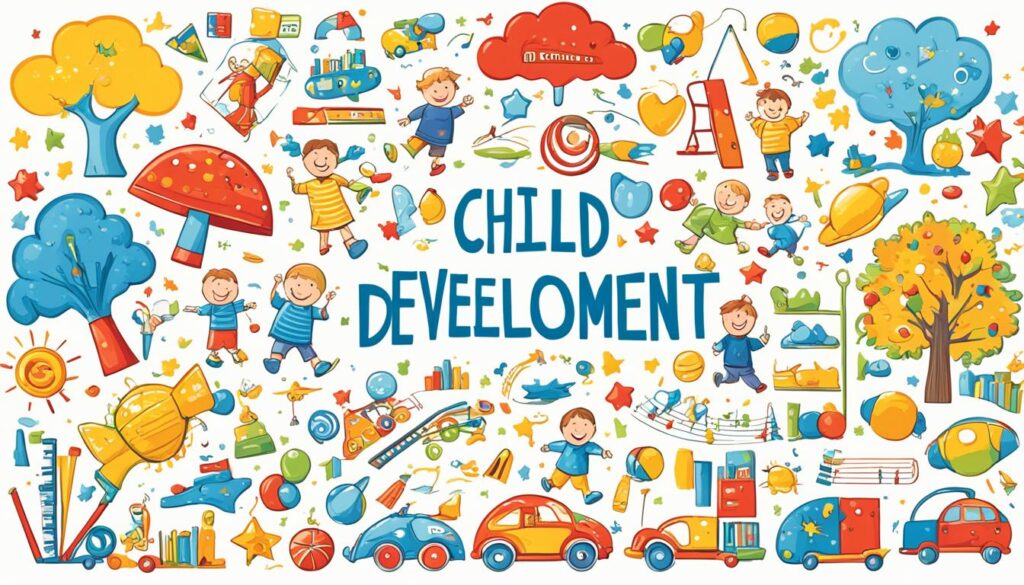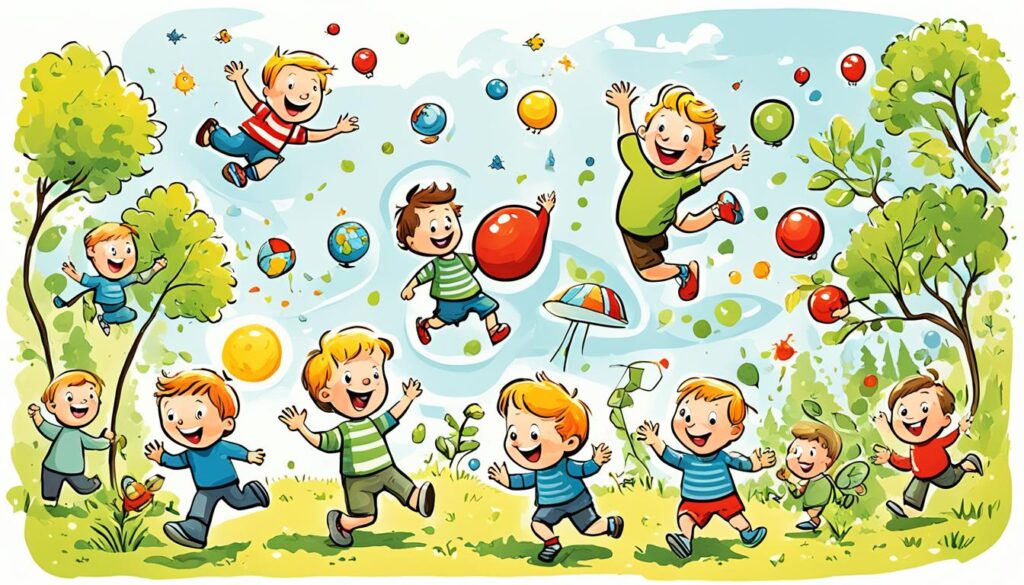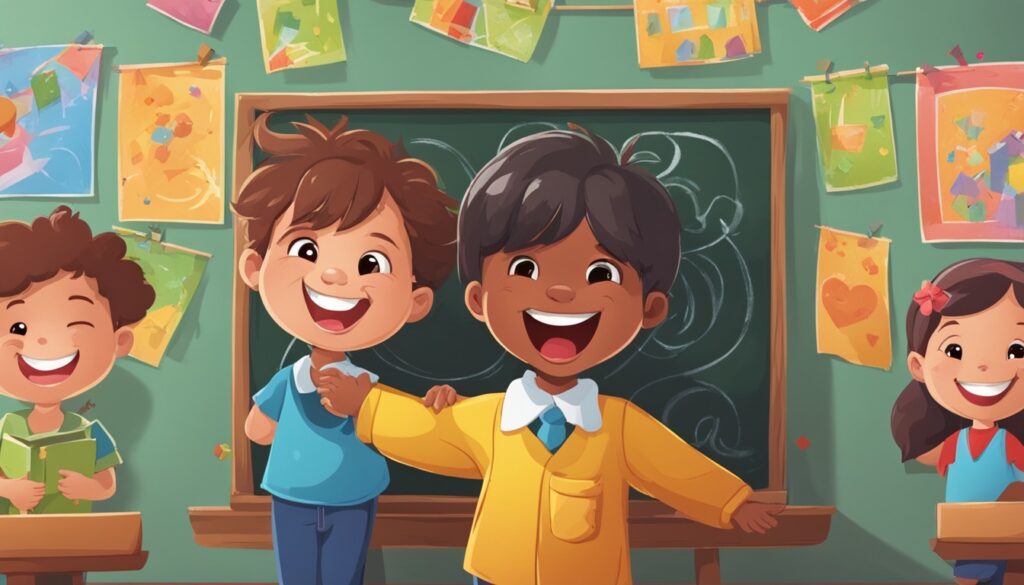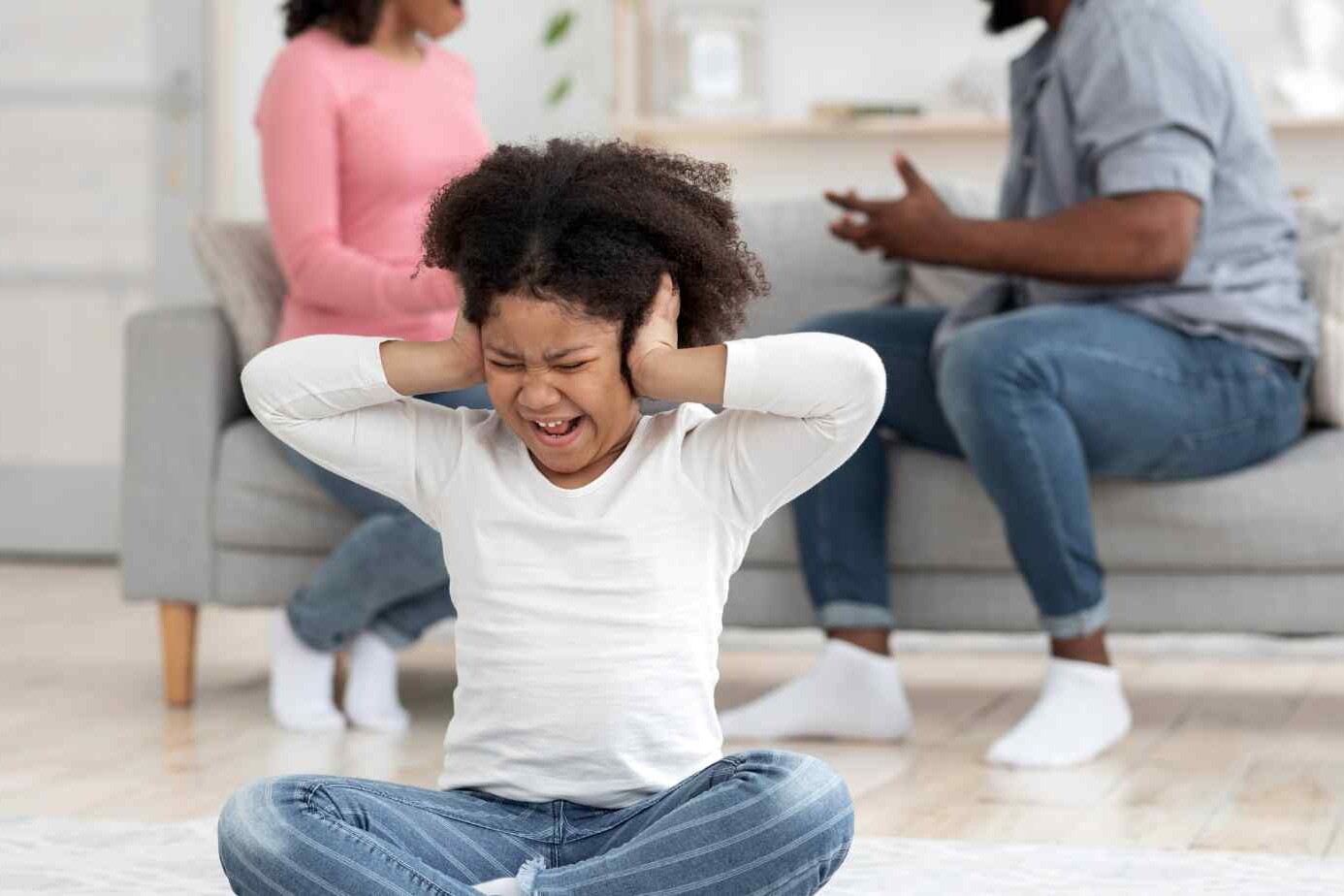Child psychology is at the core of human growth and development. It’s about how children think, feel, and act as they grow. This field studies their cognitive, emotional, and social growth. It shows how nature and nurture work together.
We’ll explore the main stages of childhood, from infancy to adolescence. Knowing these stages helps us support children’s healthy growth. This way, they can reach their full potential.
If you’re a parent, teacher, or just interested in human behavior, this guide is for you. It gives you the basics of child psychology. Let’s start this journey together, unlocking the secrets of our children’s lives.
Table of Contents
ToggleThe Magic of Childhood: What is Child Psychology?
Child psychology is a field that looks into the complex world of young minds. It studies how kids change as they grow, in their thinking, feelings, and social skills. This field is key to understanding how children think, feel, and act.
Child psychology focuses on child development. It looks at child psychology, child development, cognitive development, emotional development, social development. From birth, a child’s brain is busy making new connections and processing information. As they grow, they learn to understand the world better.
Child psychology also looks at a child’s feelings and social life. Kids learn to handle their emotions and interact with others. They develop important skills like empathy, communication, and solving conflicts.
Unlocking the Mysteries of Child Development
Child psychologists study how different parts of child development connect. They look at nature vs. nurture, the role of relationships, and social skills. Their goal is to understand what makes children grow and succeed.

Exploring child psychology reveals the amazing story of childhood. It’s about change, discovery, and the huge potential of the human mind. Let’s join this journey and discover the magic of childhood together.
The Building Blocks of Development: Stages of Childhood
Children grow through different stages, each with its own traits and milestones. Knowing about child development stages helps parents, teachers, and those working with kids. Let’s look at the main stages of childhood and how they influence growth.
Infancy and Toddlerhood: This early stage sees fast physical growth, the start of motor skills, and early communication skills. Babies and toddlers start to interact with their world, making important connections. These early steps set the stage for growth later on.
Early Childhood: In the early childhood years, kids start to talk, play imaginatively, and find their own identity. They grow their social skills and learn more about the world around them.
- Middle Childhood: Kids’ cognitive abilities keep getting better, they make more friends, and self-esteem grows.
- Adolescence: Teens go through a time of identity exploration, wanting more independence, and big emotional changes.
Knowing about child development stages is key to helping kids grow and be happy. By understanding each stage’s unique needs, we can support them through childhood and adolescence better.

Unlocking the Child’s Mind: Key Concepts in Child Psychology
To really get what a child thinks and feels, we need to know some key ideas in child psychology. These ideas help us see how kids think, feel, and connect with their world.
Nature vs. Nurture
The debate about nature vs. nurture looks at how genes and the environment shape a child. It shows us how kids grow and become who they are. This balance helps us understand kids in many ways.
Attachment Theory
Attachment theory talks about the early emotional ties between kids and their caregivers. These early bonds are key to a child’s emotional health, social skills, and growth. They affect a child’s life a lot.
Cognitive Development
Jean Piaget’s work has shown us how kids build their understanding of the world. Knowing these stages helps us support their learning and thinking.
Socialization
Socialization is key to a child’s growth. It’s how they learn about the world from family, friends, and society. This shows us how important it is to have a good social environment for kids.
Exploring nature vs. nurture, attachment theory, cognitive development, and socialization helps us understand child psychology better. This knowledge lets us support kids’ healthy growth and well-being.

- Explore advanced child psychology theories and concepts
- Gain practical insights to promote healthy child development
- Enhance your professional skills and credentials in the field
- Make a positive impact on the lives of children and their families
Don’t miss this chance to deepen your understanding of child psychology. Enroll in our “Certification in Child Psychology” course today. Start a journey of ongoing learning and growth.
Child psychology
Child psychology is a fascinating field that looks into how kids grow mentally, socially, and emotionally from birth to being teenagers. It’s all about figuring out what makes each child act and develop in their own way. This branch of psychology helps us see the complex things that shape their lives.
At its core, child psychology aims to understand how kids think, feel, and connect with others as they grow. Experts in this area share important findings with parents, teachers, and those who care for kids. This helps them support a child’s healthy growth and happiness.
Unlocking the Mysteries of Child Behavior
Child psychology covers many topics like learning, genes, thinking skills, and emotional health. Experts in this field work hard to spot and solve problems kids might face as they grow. They help kids deal with the challenges of growing up.
Child psychologists are key in helping kids develop fully. They make sure kids have the skills and support they need to do well in school, with friends, and on their own.
Learning about child psychology helps us value the incredible journey of childhood. It shows us how childhood sets the stage for a child’s future success and happiness.
Understanding Child Development: An Overview
As parents, we are key to our children’s growth and development. Child development covers physical, cognitive, and psychosocial changes from infancy to adolescence. Developmental psychologists study these changes to understand how children grow over time.
Child development mixes nature and nurture. Nature includes a child’s genetic makeup, affecting their abilities and traits. Nurture is about the environment, like family and school, that shapes a child’s growth and happiness. Knowing these factors helps us support our children’s physical, cognitive, and psychosocial development.
The Pillars of Child Development
Child development includes several key areas:
- Physical Development: This covers growth in height, weight, and motor skills, along with the development of senses and the nervous system.
- Cognitive Development: This is about the child’s thinking skills, like solving problems, remembering things, paying attention, and learning new languages.
- Psychosocial Development: This looks at the child’s emotional, social, and behavioral growth. It includes forming relationships, managing feelings, and getting along with others.
Knowing about these areas helps us support our children’s overall well-being and help them reach their potential.
Parenting is a journey of supporting our children’s growth. Each child grows at their own pace and has unique milestones. By paying attention to their needs and creating a caring environment, we can help them develop well.
The Role of Parents in Supporting Children’s Development
As parents, we are key to our children’s growth. We shape the world they see and learn from. Good parenting means understanding our child, helping them feel emotionally secure, and teaching them to get along with others.
Child psychologists stress the need for a safe and caring home. They help us be better parents and boost our kids’ mental health.
Fostering Emotional Resilience
Helping our kids be emotionally strong is vital. We can do this by:
- Accepting their feelings and emotions
- Teaching them ways to cope
- Showing how to manage our own feelings
Encouraging Social Skill Development
Helping our kids with social skills is important too. We can do this by:
- Offering chances for them to meet others
- Teaching them how to solve problems
- Encouraging good social actions
By knowing our role and using good parenting tips, we make a place where our kids can grow and succeed.
Conclusion
Child psychology helps us understand and support kids as they grow. It shows us how to help children’s mental health. From babies to teens, each stage has its own challenges and chances for growth.
Knowing about child psychology is key to helping kids grow well. By learning about child development, we see how kids think, feel, and behave. This knowledge lets us make places where kids can be happy and reach their goals.
As we finish our look at child psychology, we see it’s a team effort. Parents, teachers, and experts can work together. Together, we can make a world where every child is valued, strong, and ready to succeed.
FAQ
What is child psychology?
Child psychology studies how kids think, feel, and act as they grow. It looks at their thinking, feelings, and social skills. It shows how these things work together to shape their view of the world.
What are the key stages of childhood development?
Childhood has different stages, each with its own milestones. These include Infancy and Toddlerhood, Early Childhood, Middle Childhood, and Adolescence.
What are some key concepts in child psychology?
Understanding child behavior and growth means knowing a few key ideas. These include Nature vs. Nurture, Attachment Theory, Cognitive Development, and Socialization.
How can the “Certification in Child Psychology” course help me?
If you want to understand and help young minds, our “Certification in Child Psychology” course is great. It goes deep into child psychology, covers advanced theories, and gives practical tips for healthy child development.
What is the role of parents in supporting children’s development?
Parents are crucial in a child’s growth. They create the space where kids learn about people and the world. Good parenting means understanding the child’s actions, supporting their feelings, and helping them with social skills.
How does child psychology provide a framework for understanding and supporting children?
Child psychology offers a strong way to understand and help children grow. It teaches parents and professionals how to support kids’ mental health. Each stage of childhood, from infancy to adolescence, has its own challenges and chances for growth.
Source Links
- https://www.open.edu/openlearn/education-development/childhood-youth/introduction-child-psychology/content-section-0 – Introduction to child psychology
- https://kaleidoscope.com.sg/introduction-to-child-psychology/ – Introduction to Child Psychology: Understanding the Development and Well-being of Children
About The Author

This article is medically reviewed by Dr. Chandril Chugh, Board-Certified Neurologist, providing expert insights and reliable health information.
Dr. Chandril Chugh is a U.S.-trained neurologist with over a decade of experience. Known for his compassionate care, he specializes in treating neurological conditions such as migraines, epilepsy, and Parkinson’s disease. Dr. Chugh is highly regarded for his patient-centered approach and dedication to providing personalized care.
→ Book a consultation to discover which remedies suit your needs best.




